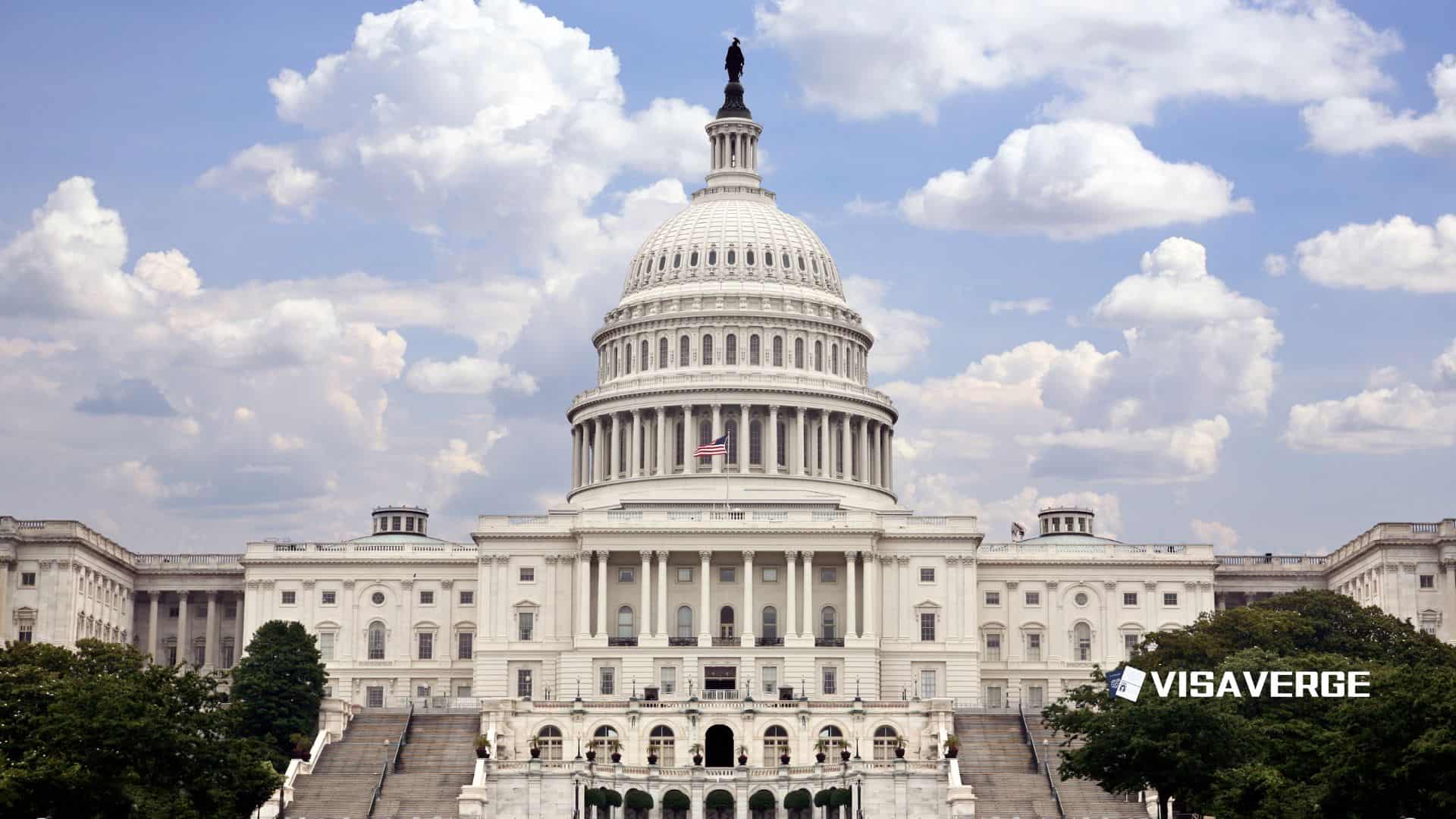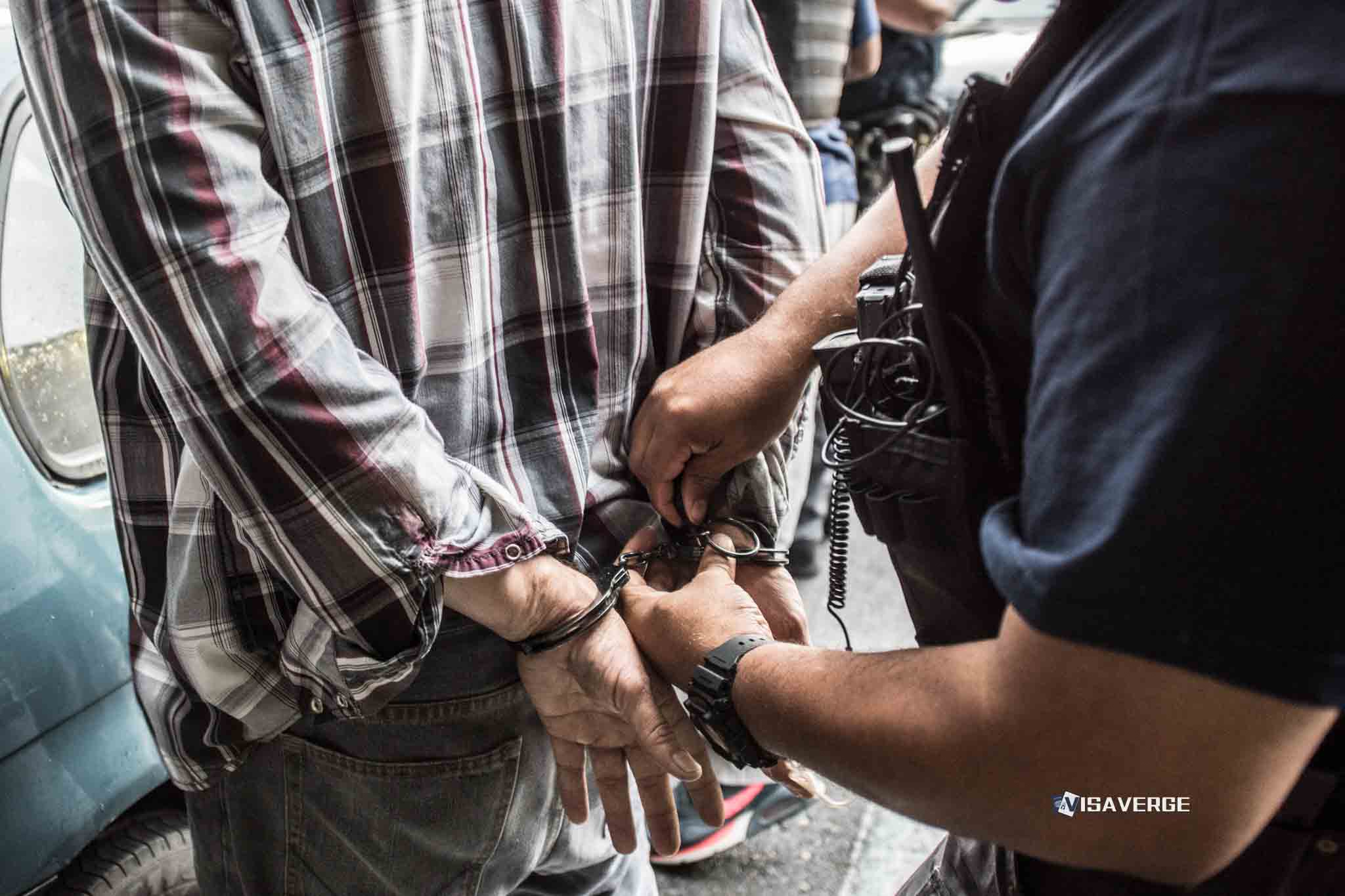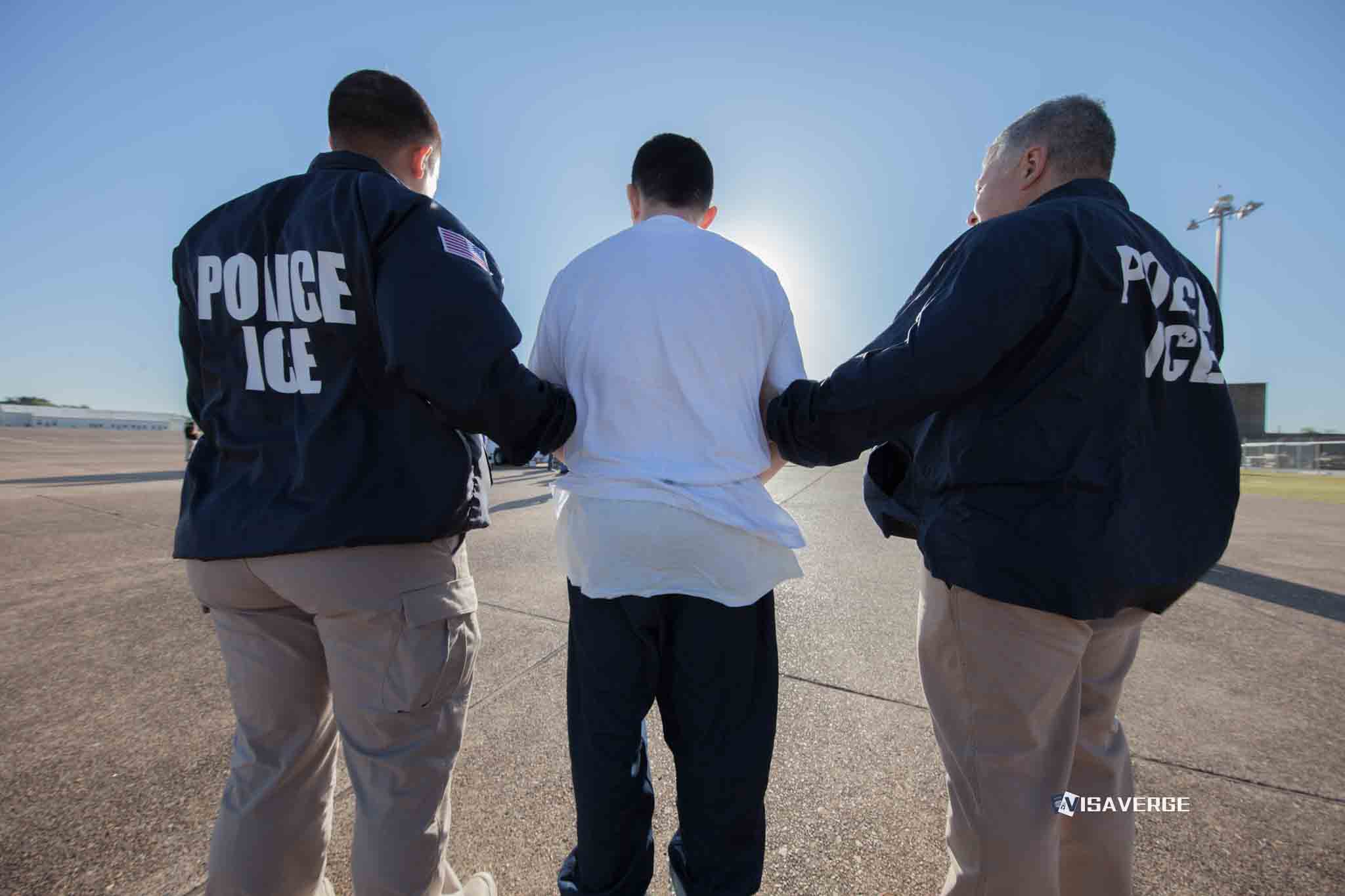Key Takeaways
• Governor Landry and President Trump announce Operation GEAUX to toughen immigration enforcement in Louisiana.
• Operation GEAUX begins May 15, 2025, increasing local police and ICE cooperation across the state.
• Immigrants without proper status face higher risks of arrest or deportation due to heightened state-federal partnership.
Louisiana governor Jeff Landry stood today beside President Donald Trump in Baton Rouge to announce one of Louisiana’s most sweeping immigration enforcement plans to date: Operation GEAUX. This new initiative, launched in cooperation with U.S. Immigration and Customs Enforcement (ICE), will aim to strengthen the local and federal response to illegal immigration across the state. Although many details about the exact methods and targets are still coming out, the plan marks a major moment in how the state plans to work with federal authorities on this issue.
Operation GEAUX: What Is It?

Operation GEAUX, unveiled on May 15, 2025, is a partnership designed to enforce immigration rules more strictly throughout Louisiana. Governor Landry and President Donald Trump presented this as a direct response to what they call growing concerns over unlawful immigration. While neither leader gave a full breakdown of every aspect during the announcement, both shared that the main focus would be increased cooperation between state law enforcement and ICE.
The name Operation GEAUX, with “geaux” pronounced like “go,” is a nod to Louisiana’s unique spelling traditions and proud regional identity. But it also sends a message: state authorities intend to be more active and involved in helping federal agencies find and process people who are in the United States 🇺🇸 without proper immigration status.
How Will Operation GEAUX Work?
Not all practical details have been released, but what’s known is that Operation GEAUX will lead to closer work between:
– Louisiana State Police and ICE officers
– Local parish sheriffs
– Other state agencies reporting to the Louisiana governor
The plan seems to call for faster sharing of information on possible immigration law violations, more frequent joint raids or patrols, and possibly quicker detainment of individuals flagged by federal databases. It may also involve using state resources, such as local police or facilities, to support federal removals (deportations).
According to VisaVerge.com, Operation GEAUX represents one of the clearest examples of a state government stepping forward to help carry out federal immigration law. This type of local-federal partnership is not new, but Governor Landry’s highly public support signals that Louisiana may be more involved than most other states.
Why Louisiana? The State’s Role in National Immigration Debate
Louisiana has often been seen as a place of arrival for people hoping to start a new life, but also as a state with strong feelings about border control. In recent years, concerns about undocumented immigrants and their impact on jobs, crime rates, and public services have become key issues for voters.
President Donald Trump has focused on immigration policy throughout his time in public life. His administration’s push for tighter rules is well-known, and Governor Landry’s decision to join forces sends a message that Louisiana will be at the front of these efforts, not just following federal orders but actively partnering in the work.
Louisiana’s close relationship with surrounding border states, and its large rural areas, have also made it a pathway for people moving north from the southern border. Supporters of Operation GEAUX say these conditions make it essential for the state to get involved alongside national agencies.
What Are the Possible Effects of Operation GEAUX?
On Immigrants and Their Families
One of the most direct results will likely be a higher risk of arrest or deportation for people in Louisiana without valid immigration papers. With local police and sheriffs now working more closely with federal officers, it will probably become harder for undocumented people to avoid detection.
This could create new fears in affected communities. Even those who have lived in Louisiana for many years may feel less safe, especially if they have children who are U.S. citizens or are waiting for their cases to be resolved in immigration courts.
Advocacy groups have warned that this kind of crackdown can lead to families being separated and a decline in trust between police and immigrant communities. In the past, similar joint actions in other states have led to immigrants being afraid to report crimes or seek basic help because they fear being arrested or deported themselves.
On Law Enforcement
Operation GEAUX presents new demands for police officers and sheriffs, who may have to balance state and local community priorities with federal expectations. Past partnerships between states and ICE have raised questions about funding and training. Officers may need new guidance on how to identify and process immigration cases correctly.
While some police unions and leaders support the plan, saying it provides needed backup in managing crime, critics worry that it could stretch local resources and distract from other important community needs.
On Businesses and the Economy
A major concern is how the stricter enforcement might affect businesses, especially in industries like agriculture, construction, and hospitality. Many Louisiana employers rely on immigrant labor, some of whom may not have full legal documentation.
If more people are detained or removed quickly, as Operation GEAUX suggests, these businesses could face sudden shortages of workers. This can lead to raised costs, unfilled positions, and service slowdowns.
Historically, when states get tougher on immigration, some employers find it harder to fill roles that require long hours or tough conditions. That could lead to higher prices for consumers or delays in routine projects.
On Local Governments and Public Services
Operation GEAUX will likely require more cooperation between city and parish governments and federal officers. This could mean more paperwork and time spent responding to federal requests. Some local agencies could need to update their procedures or even their technology to keep up.
While there may be more funding from federal or state sources to help pay for these changes, the overall impact on local work can be significant. City councils and parish boards might need to adjust budgets or add staff to handle the increased workload.
The Broader Political and Social Context
President Donald Trump’s Approach
This operation comes in the context of President Donald Trump’s well-known stand on immigration. During his time in office, he has made stopping illegal immigration a top priority, both at the border and inside the country.
Operation GEAUX fits with several other policies where the federal government has called on states to play a bigger role. These include asking state and local police to report people they suspect of being in the country illegally, or to hold them in local jails until ICE can pick them up.
With the Louisiana governor standing beside President Donald Trump for this announcement, it sends a message that states can and should support federal priorities, not just leave everything to Washington, D.C.
Louisiana Governor Jeff Landry’s Perspective
Governor Landry has described Operation GEAUX as a way to “restore law and order” in Louisiana. He presented it as a move to keep communities safe and ensure that only those with the legal right to remain in the United States 🇺🇸 can do so.
Supporters have pointed to recent high-profile cases of crime involving immigrants as evidence that stricter enforcement is needed. However, others note that research often shows immigrants, including undocumented ones, are less likely to commit crimes than native-born citizens.
Governor Landry’s open support for President Donald Trump’s hard line may help build support among certain Louisiana voters, especially those who see immigration as a pressing issue.
Public Response: Support and Concerns
The rollout of Operation GEAUX is drawing strong opinions. Some residents and lawmakers are backing the plan as a step necessary to protect jobs and public safety.
But others, including many community and faith leaders, are worried. They fear that the push for stricter enforcement will damage trust, break up families, and make large groups of people feel unsafe.
As reported by VisaVerge.com, initiatives like Operation GEAUX are often watched very closely by both national and local immigration watchdogs, as they can set examples for other states.
What Are the Next Steps?
Because Operation GEAUX has just been announced, further details on how it will be carried out are expected soon. Key things to look for include:
- The exact roles assigned to Louisiana state and local police
- Updates from ICE on new enforcement targets or affected regions
- Statements or guidance from Governor Landry’s office on how the operation will measure success
More information may be made public through official news releases or updates on state and federal websites. For readers who want to stay informed about the program, checking the official website for U.S. Immigration and Customs Enforcement is a good way to follow new announcements.
Conclusion: What Does Operation GEAUX Mean for Louisiana?
Operation GEAUX, bringing together the Louisiana governor and President Donald Trump, is one of the boldest recent moves to increase enforcement of federal immigration law at the state level. Its announcement underlines a growing trend in some parts of the United States 🇺🇸—greater state involvement in federal immigration efforts.
For immigrants, this will likely mean higher risks if their papers are not in order, and a new wave of uncertainty about the future in Louisiana. For local governments and law enforcement, the operation brings fresh challenges and opportunities.
Businesses may also need to prepare for the impact of stricter rules on their workers and operations. Communities across the state will watch closely to see if the plan leads to better public safety—or merely new concerns.
As more details emerge about Operation GEAUX over coming weeks, affected families, employers, service agencies, and legal groups will be able to respond and seek more information. For now, the message is clear: Louisiana intends to be a partner, not a bystander, in America’s ongoing immigration debate.
For those seeking official information about immigration enforcement or their own rights, it’s important to check reliable, official sources, such as the U.S. Immigration and Customs Enforcement website. Reliable updates and directions will be posted there as the operation unfolds.
No matter which side of the debate you are on, Operation GEAUX is sure to shape the future of immigration enforcement in Louisiana for years to come. Whether this approach finds broad support or faces serious pushback may depend on how well it balances safety, fairness, and respect for everyone affected.
Learn Today
Operation GEAUX → A Louisiana immigration enforcement initiative, launched May 15, 2025, to increase cooperation between state agencies and ICE against unlawful immigration.
ICE (Immigration and Customs Enforcement) → A federal agency responsible for enforcing immigration laws, including investigations, arrests, and deportations within the United States.
Deportation → The process of removing individuals from the United States for violating immigration laws or lacking authorized legal status.
Undocumented Immigrants → People residing in the United States without legal authorization or valid immigration documents, making them vulnerable to enforcement actions.
Sanctuary City → A city or locality that limits cooperation with federal immigration authorities, often to protect undocumented residents from deportation.
This Article in a Nutshell
Louisiana launches Operation GEAUX, a bold joint effort between Governor Jeff Landry and President Trump to enhance immigration enforcement. The plan intensifies cooperation between state law enforcement and ICE, increasing the risks for undocumented residents and challenging local governments, businesses, and communities to adapt to new rules and greater federal-state coordination.
— By VisaVerge.com
Read more:
• U.S.-Mexico Cooperation Shakes Up Migration in Americas
• Trump Revives ‘Operation Wetback’ With Million-Deportation Goal
• ICE Enforcement Operation Nets 189 Arrested in D.C.
• Press Information Bureau denies Rafale jet downed in Operation Sindoor
• K Rammohan Naidu urges flight operations to resume after disruptions













